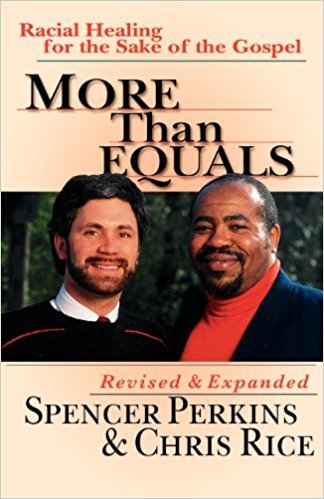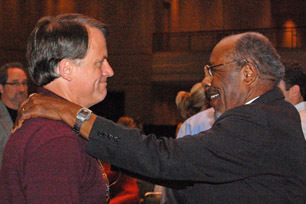Randy Alcorn's Blog, page 129
August 28, 2017
Can Coloring Books Be Done to God’s Glory?

I’m excited about the release of my adult coloring book Picturing Heaven, on September 5. The illustrator, Lizzie Preston, and the team at Tyndale House have done a great job with it. (Yes, I said coloring book. Read on to learn more.)
Here’s a sample. The layout is Scripture and a brief meditation I’ve written on Heaven and the New Earth on the left, and a full page of coloring on the right.
I anticipate some will probably say, “You write biblical and theological books, and encourage good stewardship of time and money. Why would you succumb to the superficial trend of coloring books?”
I heard similar responses when I wrote Eternity, my first of two graphic novels. “Seriously, a theological, Christ-centered, Bible-based writer doing a glorified comic book?” (See my defense of God-honoring and Bible-based graphic novels here.)
One of the main reasons I agreed to do this book is that I love books, I love publishing, and I really enjoy trying my hand doing different kinds of books. You don’t know what you can do until you try. I love writing a wide variety of books. That’s why I started writing novels in the early 90’s. I’ve done theological books, devotionals, a women’s book, multiple novels of different genres, children’s books, picture books, graphic novels, and now…a coloring book.
I recently read a review saying, “I think the author just wrote this book to make money.” Honestly, though I don’t think making money is wrong, it’s safe to say it doesn’t motivate me much since I don’t receive any money from the books I write. So the coloring book idea has nothing to do with making money; it has everything to do with the fun of God-honoring creativity and trying to touch the lives of different people in a different way.
Forgive me if this blog sounds a little defensive, but I’ve gotten enough pushback on writing different kinds of books that I think I need to make some clarifications. Following are some arguments against coloring books, and my responses:
They are childlike, and we are to put away childish things.
God created and values a childlike spirit (Mark 10:14-15). Jesus held children on His lap and said, “Truly, I say to you, unless you turn and become like children, you will never enter the kingdom of heaven” (Matthew 18:3).
 Certainly if “childlike” and “childish” refers to what’s immature or dishonoring to the Lord, we’re wise to avoid it. But when Paul says that he “gave up childish ways” (1 Corinthians 13:11), he was referring to immature things we should naturally outgrow. He was not referring to childlike delight in God and in life, which we, as God’s children, should never outgrow!
Certainly if “childlike” and “childish” refers to what’s immature or dishonoring to the Lord, we’re wise to avoid it. But when Paul says that he “gave up childish ways” (1 Corinthians 13:11), he was referring to immature things we should naturally outgrow. He was not referring to childlike delight in God and in life, which we, as God’s children, should never outgrow!
Let’s not decide that because children color, coloring is automatically off-limits or silly for adults! Artists aren’t “childish” when they draw or paint or color. Must one be a professional to engage in such activity?
Children enjoy doing many things, including eating ice cream, laughing, swimming, and playing games. Those are all things that adults can do too, allowing their delight to draw them to Jesus, the Source of all joy.
They are a waste of time, and we are to redeem the time.
Compare the time spent in relaxing, exercising your creativity, and reducing your stress levels with the hours we spend looking at our phones or watching television and movies, unsure of what might come up next that displeases God or disturbs our souls. Even if you still think coloring is a waste of time, it’s fitting to ask, “You wouldn’t waste your time doing coloring books, but how do you feel about your time spent on social media and talk radio and sports radio?” We can overdo anything, but all these things in moderation can be healthy.
If what you otherwise would have done with that hour is pray, read the Bible, feed the poor, gather with your church, or share Jesus with your neighbor, then sure, just say “no” to the coloring book! But if you would have spent it doing a number of other discretionary things, then feel free to say “yes” to the coloring book.
They are trendy, and we must never be trendy.
I resist trendiness when it encourages wrong thinking and superficiality. But sometimes what’s new and popular isn’t inherently wrong. Downsizing and the movement toward greater simplicity are trendy, as are eating better quality food and getting good exercise, but I think they are often good trends. (Trust me, I am well aware of trendiness in the publishing world, which applies equally to secular and Christian publishing!)
But often trends point to felt needs, and sometimes these felt needs are legitimate. Life has become extremely stressful to many people, and they find themselves worrying. Watching the evening news, listening to radio, and talking negatively at the workplace about political trends doesn’t help (nor does viewing ten murders a night on entertainment television). The constant stream of information, pictures, and news from social media and the internet can leave our minds fragmented and our souls empty.
In contrast, Jesus said, “My peace I give unto you” (John 14:27) and “Come onto me all you who are heavy laden” (Matthew 11:28). Certainly reading and mediating on God’s Word can and should be our primary source of stress-relief. But He provides countless other sources of joy and refreshment, including family, friends, food, nature, sleep, and hobbies. These are good gifts from our Father (James 1:17). Coloring books can be the same.
My wife is extremely gifted musically and can play anything by ear. But she doesn’t like to play in front of people. So I got her a keyboard with a headset she can plug in. It’s pure fun and therapy for her, like biking and snorkeling are therapy for me. So why wouldn’t it be okay for people to experience meaningful creativity and stress reduction through coloring books?
Here are some reasons to give coloring books a try:
They can be done to God’s glory.
 “Whether you eat or drink or whatever you do, do all to the glory of God” (1 Corinthians 10:31). I ride my bike to God’s glory. And I worship God while joyfully playing tennis and snorkeling, just as I worship Him while enjoying music, reading God’s Word, and playing with dogs. We can worship God as we eat, drink, work, and enjoy hobbies, nature, and art.
“Whether you eat or drink or whatever you do, do all to the glory of God” (1 Corinthians 10:31). I ride my bike to God’s glory. And I worship God while joyfully playing tennis and snorkeling, just as I worship Him while enjoying music, reading God’s Word, and playing with dogs. We can worship God as we eat, drink, work, and enjoy hobbies, nature, and art.
I encourage you to exercise your creativity instead of being hand fed the endless mind-numbing products of movies, television, video games, and other addictive habits. They are good in moderation, just as food is good in moderation, but gluttony is not good.
God values creativity. Practicing it now can be a foretaste of the creativity that will be unleashed on the New Earth.
The first person Scripture describes as “filled with the Spirit” wasn’t a prophet or priest; he was an Israelite craftsman (Exodus 31:1-6).God gifted and called Bezalel to be a skilled laborer, a master craftsman, a God-glorifying artist. The gifting and calling were from God (Exodus 35:30-35).
If you don’t believe craftsmanship will be an important part of the New Earth, read Exodus 25–40. God tells His people in exquisite detail how to sew clothing, what colors to use, how to construct the furniture for the Ark of the Covenant and Tabernacle, what stones to put on the high priest’s breastplate, and so on. He instructed the Israelites to make the priests’ clothing “for glory and for beauty” (Exodus 28:2).
The design, precision, and beauty of these things tell us about God, ourselves, and the culture of the New Earth. God’s instructions and His delight in the gifts He imparts to people to accomplish these tasks make clear what we should expect in Heaven: greater works of craftsmanship and construction, unhindered by sin and death. When we die, we won’t leave behind our creativity, but only what hinders our ability to honor God through what we create. Meanwhile, we can get a head start and exercise that creativity in Christ-honoring ways.
It’s inexpensive, and you won’t end up wasting much money even if you don’t continue.
You can’t take up golfing, scuba diving, or skiing without spending a ton of money, and in many cases these costly hobbies are given up quickly. But your worst case scenario is some unused crayons or pencils or pens you can give to friends or grandkids, and the cost of one coloring book (I checked online and they range from $4 to $14, the more expensive ones being, as you’d expect, higher quality).
If you have some crayons or colored pencils, give it a try. Just get one adult coloring book (no, it does not have to be Picturing Heaven!). Try it. If you feel God increasing your joy or decreasing your stress, if you feel Him pulling you away from less creative and more unhealthy ways to spend your time, great. If you want to get more coloring books, one at a time, fine.
My suggestion is this: Let’s not mock as silly and wasteful what brings harmless joy to others.
I don’t collect stamps, baseball cards, coins, or rocks, though I did as a child. You may think that means I moved on from childish things. But I’ve found other diversions, and most of them, I believe, are edifying, refreshing, and God-honoring. Some people keep their childhood hobbies as adults; others move on. But it’s not always a good move, certainly not when harmless childhood interests are replaced by harmful adult addictions.
Yes, unhealthy obsession and focus on things that won’t last isn’t our goal. But seen properly, even small things like coloring books can draw our heart to worship Christ.
Christianity Today shared a helpful piece on “Why Adult Coloring Works for Christians.” Alicia Cohn writes:
…can Bible-themed coloring books actually aid spiritual discipline? I think they can, but like any tool, it depends how we use them. …For those who do like the Scripture-based coloring books, the length of time it takes to color in a verse is long enough for meditation and even memorization of the verse itself.
…I may not be convinced by the arguments that coloring “unleashes creativity” or lowers the activity of my amygdala—in fact, I still feel a little silly every time I pick up the coloring book on my coffee table—but I am starting to crave my coloring time. It’s a flexible tool that helps me maintain a healthy mind and a healthy heart.
August 25, 2017
Does Obeying God Mean Sacrificing Our Happiness?

Until now you have asked nothing in my name. Ask, and you will receive, that your joy may be full (John 16:24).
It is a Christian duty . . . for everyone to be as happy as he can. —C. S. Lewis
You may be unaccustomed to thinking that God commands us to be happy or to do things that make us happy. But He does. And I’d wager that since the outcome of our obedience would be our happiness, these are commands we would all want to obey—provided we were thinking clearly.
Some people have an intuitive resistance to the notion that happiness is unbiblical, and rightfully so. A blogger says, “Happiness isn’t in the Bible? But what about all the commands to rejoice? What about laughter? Please tell me I’m not supposed to always be heavy-hearted, trudging along and begrudging obedience. I want to be a happy Christian!”[i]
Happiness is a privilege. However, since God repeatedly calls upon us to rejoice, delight, and be glad in Him, we have an obligation to actually do so.
This makes sense only if the God we love is happy, if the gospel message we embrace and proclaim is happy, if Heaven is a happy place, and if it makes God happy for us to be happy. It makes sense if we understand that people long to be happy and won’t turn to Jesus if they believe there’s no happiness in Him. Others will judge whether there’s happiness in Jesus by whether they see happiness in His followers. Hence, our happiness is, in multiple respects, a Christian duty.
But what an incredibly wonderful duty it is . . . like being required to eat Mom’s apple pie! We’re accustomed to thinking of duty as drudgery. Yet we know that the duties of loving a spouse or caring for a child or serving one’s country can bring satisfaction, contentment, and happiness.
People have told me it’s easy to speak of happiness in a prosperous country, but how dare we say God expects those impoverished and suffering to be joyful? In fact, poor Christians often have joy that radiates far beyond what we typically see in Western churches, and they have much to teach us. I’ve studied more than 2,700 Scripture passages where words such as joy, happiness, gladness, merriment, pleasure, celebration, cheer, laughter, delight, jubilation, feasting, exultation, and celebration are used. Throw in the words blessed and blessing, which often connote happiness, and the number increases.
Even Jeremiah, who’s called “the weeping prophet” since he was brokenhearted over the tragic suffering of God’s people, spoke prophecies of happiness. He saw the future—some of it in this world’s Jerusalem and much of it in the New Jerusalem to come—and in it he was given glimpses of God’s promised happiness.
God is clear that seeking happiness—or joy, gladness, delight, or pleasure—through sin is wrong and fruitless. But seeking happiness in Him is good and right.
So should we feel guilty for being unhappy, struggling with depression, and being sad at the suffering in our lives and others’ lives? No, but we should feel a liberating hope that Jesus, who knows infinitely more about suffering than we do, offers us and calls us to greater happiness than we’ve known. As Jeremiah and Jesus wept, we, too, will sometimes weep—and so we should. But if we’re not experiencing some degree of happiness in God, then we’re not obeying God’s commands and we’re missing out on the abundant life Jesus came to give us (see John 10:10).
Let’s say yes to His offered gift of happiness in Him. Your temperament may be like mine—not naturally joyful, but more melancholic and prone to depression. You may not become the happiest person you know, but just as I have, you, too, can become far happier in Christ than you ever could have on your own.
Over the years, as I have contemplated Scripture, walked with God, and sought to cultivate an eternal perspective, my happiness has increased. None of us are prisoners of our natural temperaments. We too quickly underestimate the Holy Spirit’s power to transform us gradually into the image of Christ (see 2 Corinthians 3:18).
The fruit of the Spirit described in Galatians 5:22-23, including joy, is the Holy Spirit doing a supernatural work in our lives. What we cannot do in ourselves He can do in us when we yield ourselves to him.
I talked with a young woman who viewed the Christian life as one of utter dullness. She knew that following Christ was the right thing to do, but she was certain it would mean sacrificing her happiness.
Unless her view changes dramatically, her spiritual future is bleak. It isn’t in our nature to continually say no to what we believe would make us happy—or to say yes to something we think would make us unhappy. (Don’t mistake perseverance for choosing unhappiness—the man who faithfully loves his wife suffering from dementia is not choosing unhappiness but rather choosing the happiness of honoring his wife, keeping his vows, maintaining his self-respect, and hearing God’s “well done.”)
So where did this young woman, who was raised in a fine Christian family and church, acquire such an unbiblical notion? Somehow she, like many of us, missed the point of what God calls the good news of great joy.
Around 150 years ago, Pastor Charles Spurgeon told his church what pastors today should tell theirs: “God made human beings, as He made His other creatures, to be happy. . . . They are in their right element when they are happy.”[ii]
Celebration and gladness of heart have characterized the church, including the suffering church, throughout history. Scripturally, the culture of God’s people is not one of misery, anger, and whining but of joy, happiness, gratitude, eating and drinking, singing and dancing, and making music. It’s not the people who know God who have reason to be miserable—it’s those who don’t.
What a wonderful God you are to not only provide a means of happiness but also to command us to be happy even as you command us to be holy. How happy we should be to love and be loved by someone as delightful as you! Thank you for creating us so that our happiness increases as our gratitude multiplies. This is joy unspeakable. We praise you for calling us to ever-greater happiness in you, your presence, your Word, your creation, and your work in our lives and in the world around us.
Excerpted from 60 Days of Happiness: Discover God's Promise of Relentless Joy.
[i] A Lois Lane, “Experiment 3.3: Why I Cannot Be a Happy Single, Part 1,” The Singleness Experiments (blog), https://singlenessexperiments.wordpre....
[ii] Charles H. Spurgeon, “Christ’s Joy and Ours” (Sermon #2935).
Photo by Andres Fernandez Unsplash
August 23, 2017
Charlottesville: Reminding Everyone That Racism Is Alive and Ugly

A lot of good things, and some not so good, have been said and written since the tragic events in Charlottesville last week. None have been much better, in my thinking, than what Russell Moore wrote. I appreciate this for its biblical base, prophetic nature, and clarity:
White supremacy angers Jesus, but does it anger his church?
As we watched the televised images of the noxious, violent white nationalist protests in Charlottesville this week, many of us felt our blood pressures rise. Many of us were, and are, angry. Many of us have been for some time about the resurgence of white supremacy and anti-Semitism we see all over the world.
In a time like this, Christians might ask whether we should, in fact, be angry. Should we not instead just conclude that this is what a fallen world is like and pray for the final judgment to come? If you are feeling distressed and heated, you have reason to be. White supremacy makes Jesus angry.
One of the many remarkable things about the picture we get of Jesus in the Gospels is how relatively calm he is. When his disciples are panicking in a life-threatening storm, Jesus is asleep. When villages reject the message, the apostles are angered but Jesus is not. Threatened with arrest and even execution, Jesus meets his accusers with tranquility. The Scriptures show us two things that make Jesus visibly angry: religious hypocrisy and racial supremacist ideology.
Read the rest on The Washington Post.
I also recommend Ed Stetzer’s article #Charlottesville, the Christian Response, and Your Church’s Call and Kevin DeYoung’s blog post It Wasn’t That Long Ago.
Racial unity—fostering interracial understanding, partnership, and unity in the Body of Christ, and in our greater communities—is one of the things close our ministry’s heart. We highly recommend John Perkin’s ministry, The John and Vera Mae Perkins Foundation for Reconciliation, Justice & Christian Community Development, one of those we support with our book royalties. John’s example of love, forgiveness, and Christ-centeredness has touched my life deeply, and I recently shared my foreword to his excellent new book, Dream With Me.
In a past blog post, Brotherhood and the Color of Our Skin, I highly recommended Benjamin Watson’s book Under Our Skin. Ben is an NFL tight-end with the Baltimore Ravens who spoke powerfully at January’s March for Life in Washington, D.C. Under Our Skin is a terrific book on race relationships. It’s now my go-to book on this subject, and I have read many.
For he himself is our peace, who has made us both one and has broken down in his flesh the dividing wall of hostility (Ephesians 2:14).
August 21, 2017
5 Practical Steps for Seeking Wisdom Through Mentorship

Who are your mentors, the people who are helping you grow in your faith? Proverbs 13:20 says that “Whoever walks with the wise becomes wise, but the companion of fools will suffer harm.” (I share some more thoughts about the importance of godly mentorship, especially related to our children, in this 1-minute audio clip.)
Sometimes knowing how to find a mentor and start that relationship can be challenging. My longtime dear friend Barry Arnold, who pastors Cornerstone Church in Gresham, Oregon, shares some thoughts about the importance of seeking wisdom from others, as well as five simple steps for pursuing mentorship:
Proverbs 1:3-4 says, “To receive instruction in wise dealing, in righteousness, justice, and equity; to give prudence to the simple, knowledge and discretion to the youth—Let the wise hear and increase in learning, and the one who understands obtain guidance, to understand a proverb and a saying, the words of the wise and their riddles.” We’re told that a truly skillful, or wise, person will never stop learning, especially from others who are even more skillful than they are.
This is why the generations have to be together. No matter what your age, you need people of other ages close to you. Older people have the wisdom younger people need. Younger people have the energy and enthusiasm older people need. The best small groups in church I’ve been part of have been inter-generational. You also need to pass on the wisdom—the life-skill God has given you—to younger people.
Let me tell you one way mentoring can work. Let’s say there are three or four men or women in your church—a little older than you—that you admire. By the time you get to their age you would like to be a lot like them. You would like to be “mentored” by them, but you don’t know how to go about asking. (On the other side, older people who have life skills are just as awkward about offering to be a mentor.)
Somebody has to make a move, and I’m suggesting it should be the younger person. Here’s what not to do: Don’t go up to an older person and ask, “Would you mentor me?” Most older people, even if they have bad knees, would bolt out the door and may never come back. “Mentor you? What’s that mean?” The older person pictures C. S. Lewis in his library, smoking a pipe and discussing Aristotle and Polycarp with a group of young men—and they think I could never do that.
But what you want to know is what strategies this older person has found successful in resisting temptation. Perhaps you want to know how to be completely fulfilled as a single person. Maybe you want to know how they kept loving their spouse—for decades. You want to know how they study the Bible, what they pray about, how they dealt with an insecure, perhaps even incompetent, boss. You want to know how their kids grew up to embrace faith in Christ when so many don’t. You want to know practical things—like how to stretch a paycheck and how to make good money decisions.
So here’s what you do, in five simple steps:
1. Make a list of older men or women you admire.
2. One at a time, approach them, saying you admire them, and you’re wondering if they would meet you for coffee because you’d like to ask them a couple questions about life. That’s it. Just ask to meet one time—to ask about how life works.
3. If they say yes, jot down questions starting with “How did you...” or “How have you...” and ask the questions. They don’t have to prepare anything. There’s no homework, no notebook, because what you want is not information but their “life skills” and “wisdom.”
4. If the hour is awkward, you’re done. Go to the next person. But if an hour and a half goes by quickly and you only got through one question, ask if they would mind meeting again. When you get your questions answered, you’re done. Maybe you’ll end up meeting five times, maybe twenty. The number isn’t important. Your questions are important.
5. Ask another person you admire if they would meet you for coffee. It may take two or three years to pick the brains of the people you select, but in this model, everyone wins. And when you’re finished, you’re not dragging along a program you don’t know what to do with.
Photo: Pixabay
August 18, 2017
When Divine Appointments Don’t Feel Pleasant

I’m a firm believer that many of life’s inconveniences involve divine appointments with people the Lord brings into our lives—if only we open our eyes to see them. God appoints the times and places we live (Acts 17), and is a Master of the exact timing that creates the beauty of divine appointments. Over the years I’ve had them in stores and restaurants and on airplanes.
Even when I don’t have the opportunity to talk to someone or give them a book or booklet, I’ve been encouraged to pray, even if briefly, for many people I see in passing and don’t know. This I do know—God created them, loves them, and desires them to be saved and to come to a knowledge of the truth (1 Timothy 2:4). God has appointed one or more of His children, within their sphere of influence, to reach out and touch the lives of these people.
So I encourage you to see your life as full of divine appointments. This blog post from EPM reader Angelia Dittmeier is a reminder that these encounters may come in unexpected ways:
Divinely Appointed Unpleasantries
You know those times when you run into a person in life and you just know God brought you to the same place at the same time for a reason? Well….this was not one of those times, or at least not at first glimpse. Yesterday I had a run-in with a woman I’m going to call “Mary.” (I don’t know her real name, and I’m somewhat grateful for that. You’ll understand why shortly.)
Mary was in a hurry to get somewhere, it appeared, because she decided to head toward the exit of a parking lot by cutting across the incoming lane of traffic. I was in the process of entering, when suddenly she was in front of me. My son Colson saw her coming and warned me, but still I had to slam on the brakes to keep from hitting her. Mary also stopped, facing the wrong way (albeit caddy corner) right in front of me. I seriously don’t know if her rage was triggered at that moment or whether it might have already been well in progress, but promptly she began mouthing things at me. She rolled down her window, and I reached to roll down my own before something I’ll call “divine instinct” told me not to do it. Mary began shouting, and the lip reading was unmistakable. Use your imagination. Mary is a very angry woman.
This is Texas, y’all. For the most part, we try to get along–but I seriously believe that had I engaged in dialogue with Mary, she may have jumped out of her car and physically attacked me (while parked in my lane)!
Sometimes I’m dense. It wasn’t until this morning that an important truth dawned on me: Divine appointments are not always pleasant. The woman in that car needs prayer. She could have driven into the path of anyone, but the same God who laid out the stars of the universe timed it so that the object of her rage would be me. It doesn’t take a mental health professional to realize this woman probably has trouble going on her life, but I am one. It doesn’t take a preacher to understand that she needs prayer, but I’m a Christ-follower. And while it might take me a while to hear the voice of God, I do try to obey Him when He speaks. At approximately 6 o’clock this morning, God enlightened me to the fact that even bizarrely unpleasant encounters sometimes take place for a wonderful purpose, outside of the realm of human understanding. What an “Aha” moment! If I don’t pray for this woman, will anyone? (Perhaps you will…but more importantly, you may, like me, have a better perspective the next time you run into your own “Mary.”)
How do I really know that God directed me to pray for Mary? “But I say to you, Love your enemies, and pray for those who persecute you…” (Matthew 5:44, ESV)
Because He said so!
Photo: Pixabay
August 16, 2017
My Answers to Questions Asked by a 12-Year-Old Reader

I really enjoy hearing from readers of my books. But my absolute favorite letters are the ones that come from children and young adults. I’m not able to answer every letter and email and message I receive (though our great EPM staff help me out with their responses to the questions that come in), but following the example of C. S. Lewis, I try to respond to all the letters from children. I want to do all I can to encourage young people to find joy in reading and ultimately in following Jesus!
Here is a recent letter I received from a young reader, and my answers to some great questions she asked:
Dear Randy Alcorn, my name is Sydney. I am 12 years old and I have two siblings. I really enjoy reading your books because they are very inspirational. I’m writing this letter to you because one of my favorite books is “Wait Until Then.”
Dear Sydney,
I was delighted to receive your letter. How encouraging to hear that you’ve enjoyed many of my books, especially Wait Until Then.
My wife, Nanci, and I visited Joni Eareckson Tada and her husband, Ken, in their home when I had just finished Wait Until Then. When I showed her the last picture of Nathan running around the bases and the wheelchair in the background, she wept. In fact, she asked to see the picture more than once. Though the book is now out of print, we donated all the royalties from this book to Joni and Friends to help provide wheelchairs for the needy around the world. You may know about Joni and her story, but if you don’t I would encourage you to read the book Joni. Besides being a dear friend, she’s one of my present day heroes of the faith!
Here are some answers to your questions:
How do you get inspiration for your books? I get inspiration for my books by reading other peoples’ books and finding ideas.
Like you, I get inspiration for my books by doing a lot of reading myself. I also pray and ask God to direct me on future writing projects and they usually come from a particular burden/interest I have on a certain subject. Often God has allowed me to experience different things in my life that are reflected in my writing.
What was your favorite book as a child? I still read children’s books today, and they still inspire me.
As a child I loved reading comic books. Some of my favorites were the Hulk and the Flash. I also loved the Sci-Fi book Stadium beyond the Stars, about Olympic competition between alien races. :)
How long does it take you to finish a book? It must be a lot of writing or typing and you probably get tired.
It usually takes 1 1/2 to 2 years to complete a book. I do a lot of research, and after I’ve written a draft I have assistance from a few members of my staff who help to reduce the word count and edit what I’ve put together. I write and rewrite several times before the final draft is submitted to my publisher. Then once they’ve edited it, I look it over again and make changes. So it’s a long process from start to finish.
What was your favorite book to write? They were all so inspiring, but my favorite was “Wait Until Then.”
One of my favorite books to write was The Grace and Truth Paradox. I love that book because it talks about the balance between grace and truth and how both of them are essential.
Do you have any books coming out soon that we should look forward to? I can’t wait for another book from you!
 I’m excited about my coloring book, Picturing Heaven, which will be out in September. There will be 40 hope-filled devotions with Scriptures along with beautiful artwork. I’m also looking forward to Seeing the Unseen coming out in October. It’s a 90-day devotional to encourage people to set their mind on eternity with Scripture, commentary, and great quotes from others.
I’m excited about my coloring book, Picturing Heaven, which will be out in September. There will be 40 hope-filled devotions with Scriptures along with beautiful artwork. I’m also looking forward to Seeing the Unseen coming out in October. It’s a 90-day devotional to encourage people to set their mind on eternity with Scripture, commentary, and great quotes from others.
When you aren’t around anyone, what are some of your hobbies? Some of mine are painting and coloring.
Some of the hobbies I enjoy are biking, reading, snorkeling, and underwater photography. I enjoy going on bike rides with two of my grandsons, Jake and Ty, ages 13 and 11. They live only a mile from our house, and we ride the Springwater Trail not far from where we live and enjoy all kinds of adventures together. I also read a lot and when I can travel I absolutely love to dive and snorkel and take underwater pictures. Whenever I can get together with my three other grandsons in California, Matt and Jack and David, I have a blast with them.
Do you have any family or pets? I have 2 siblings, my mom and dad. I also have 3 cats that are very fun to play with.
Nanci and I love dogs! I had a Golden Retriever named Champ when I was a young boy. Our first dog after we were married was a Springer Spaniel and we named him Champ, too. After he died, we got a Dalmatian named Moses. And after he left us, we now have a Golden Retriever named Maggie. She is five years old and an important part of our family. (Here’s something I wrote about Moses after he died.) I can’t prove it but I believe we’ll be reunited with our dogs after the resurrection and on the New Earth!
Here’s our Maggie, who just got a hot-weather trim:

Thanks again for writing, Sydney. Keep reading and following Jesus with your whole heart!
Your friend,
Randy Alcorn
Photo by Daria Nepriakhina on Unsplash
August 14, 2017
True Leading Is Serving
[image error]Recently I was asked, “We use the phrase ‘servant leadership’ frequently, but what does that really look like? It’s all too easy to desire for our wants and needs be taken care of, rather than acting as servant leaders who care for others, spiritually and physically, behind the scenes. What are your thoughts?”
In most cases, I think we in church and ministry leadership honestly do want to be Christ-honoring servants. I’m friends with many pastors, and I deeply appreciate their love for Christ and love for those in their churches.
But all of us can find it difficult to do the hard and thankless things that servants do, especially when no one is watching. True service is training in humility. It’s interesting that Paul tells Timothy to command the rich not to be arrogant nor to put their hope in wealth, but to do good and be rich in good deeds (service) and also to be generous and willing to share (giving). Serving and giving, in concert, are the only things that break the back of arrogance, materialism, and self-obsession.
Genuine leadership is serving, and serving is leadership. The shepherd leads by giving himself to the sheep. The Good Shepherd owns the flock, the shepherds under Him don’t. We don’t shepherd our flock, but His flock: “Be shepherds of God’s flock that is under your care, serving as overseers” (1 Peter 5:2). So overseers are servants caring for their Master’s flock.
This is the ultimate paradigm shift. Peter then tells us we should not be “greedy for money, but eager to serve.” Sometimes we’re eager to be served, not to serve. We all like to be called servants, but it’s easy to become resentful when we’re treated like servants.
First Peter 5 then describes leaders as “not lording it over those entrusted to you, but being examples to the flock.” Examples of what? Examples of Christ-like service, in which we put others before ourselves.
Leaders should never use God’s flock to build their kingdoms and reputations in order to further themselves. Rather, we should set the example of humble service. Let’s be humble leaders, not self-promoting celebrities who fail to follow the servant-leader model exemplified by Christ.
God knows our hearts. If we’re in this for fame, money, or power over people , rather than to honor and serve Christ, God will judge us severely. “It is a dreadful thing to fall into the hands of the living God” (Hebrews 10:31).
But if we’re broken, humble, quick to admit and confess our weaknesses and sins, and ready to serve, God will shed His grace upon us, comfort us, and empower us. Then, and only then, will we be Christ-like and Christ-exalting. Then, and only then, will we be leaders worth following.
Photo: Pixabay
August 11, 2017
Forsaken for a Reason

At the sixth hour darkness came over the whole land until the ninth hour. And at the ninth hour Jesus cried out in a loud voice, “Eloi, Eloi, lama sabachthani?”—which means, “My God, my God, why have you forsaken me?”
When some of those standing near heard this, they said, “Listen, he’s calling Elijah.”
One man ran, filled a sponge with wine vinegar, put it on a stick, and offered it to Jesus to drink. “Now leave him alone. Let’s see if Elijah comes to take him down,” he said.
With a loud cry, Jesus breathed his last.
The curtain of the temple was torn in two from top to bottom. And when the centurion, who stood there in front of Jesus, heard his cry and saw how he died, he said, “Surely this man was the Son of God!”
—Mark 15:33–39
Echoing David in Psalm 22, Jesus cried out on the cross, “My God, my God, why have you forsaken me?” In that haunting cry, Christ identifies with our despair and bridges the gap between God and us not only theologically, in the Atonement, but emotionally—between our suffering and God’s, between our agonizing cries and those of God’s Son.
The beloved Son who had “well pleased” His Father (Matthew 3:17) became our sin (see 2 Corinthians 5:21). So the Father turned away. For the first time in all eternity, the oneness within the Godhead knew separation. In ways we cannot comprehend—ways that would amount to blasphemy had not God revealed it to us—the Atonement somehow tore God apart.
Some believe that Jesus’ cry showed He didn’t know why His Father had poured out His wrath on Him. But Scripture says otherwise. Anticipating His death, Jesus said, “Now my heart is troubled, and what shall I say? ‘Father, save me from this hour’? No, it was for this very reason I came to this hour. Father, glorify your name!” (John 12:27–28). Jesus knew why He had to die. He cried out because any separation from His Father constituted an infinite horror.
Tim Keller explains:
The physical pain was nothing compared to the spiritual experience of cosmic abandonment. Christianity alone among the world religions claims that God became uniquely and fully human in Jesus Christ and therefore knows firsthand despair, rejection, loneliness, poverty, bereavement, torture, and imprisonment. On the Cross he went beyond even the worst human suffering and experienced cosmic rejection and pain that exceeds ours as infinitely as his knowledge and power exceeds ours.[1]
The unrighteous have no grounds for asking God why He has forsaken them—all who understand His holiness and our sin know the reasons. But God’s beloved Son had the right to ask, even knowing the answer. In some qualitative—not quantitative—way, Jesus endured the punishment of Hell. When He said, “It is finished,” signaling He had paid the redemptive price, Jesus ceased to bear the penalty for our sin. Then “Jesus called out with a loud voice, ‘Father, into your hands I commit my spirit.’ When he had said this, he breathed his last” (Luke 23:46). The unimaginable had happened. But once redemption was accomplished in space-time history, the triune God was restored to the complete oneness known from eternity past and assured for eternity future.
Lord, nothing is so horrifying as the teaching of Scripture that you became sin for us and in doing so became the object of your Father’s wrath. Thank you, Father, for being there for Jesus as He went to the cross and as His spirit departed from His body on the cross. But thank you too—Father and Son and Holy Spirit together—for your willingness, in those three hours of unfathomable darkness, to make the ultimate sacrifice to purchase our place with you forever.
Excerpted from Randy Alcorn's book 90 Days of God's Goodness.
[1] Timothy Keller, The Reason for God (New York: Dutton, 2008), 30.
Photo by Stephen Arnold on Unsplash
August 9, 2017
Dream With Me: One of My Heroes, John Perkins, Writes about Race, Justice, and Love
 I was honored to be asked to write the foreword for John Perkin’s new book Dream With Me: Race, Love, and the Struggle We Must Win, released a few months ago. Dream With Me is wonderful. I read, loved, and highly recommend it. The book speaks for itself, but far more if you know the man behind it. So it’s John Perkins and how he’s influenced me that I want to talk about. Mine is only one story. Thousands, if given the chance, would gladly tell their stories about John—and one day, at great banquets with Christ at the head of the table, they will.
I was honored to be asked to write the foreword for John Perkin’s new book Dream With Me: Race, Love, and the Struggle We Must Win, released a few months ago. Dream With Me is wonderful. I read, loved, and highly recommend it. The book speaks for itself, but far more if you know the man behind it. So it’s John Perkins and how he’s influenced me that I want to talk about. Mine is only one story. Thousands, if given the chance, would gladly tell their stories about John—and one day, at great banquets with Christ at the head of the table, they will.
There are people who I can honestly say changed my life. John Perkins is one of them.
 In 1976, I read Let Justice Roll Down. It stunned me. In the book I learned that in 1946, when John was sixteen, his brother Clyde was shot and killed by a deputy sheriff while waiting for a theater to open. Twenty years later, John spoke out for voter registration and took on segregation when he enrolled his son Spencer in an all-white high school. After organizing a boycott, he was arrested. His beloved wife, Vera Mae, and his children, who were outside the Mississippi jail, heard him beaten and tortured.
In 1976, I read Let Justice Roll Down. It stunned me. In the book I learned that in 1946, when John was sixteen, his brother Clyde was shot and killed by a deputy sheriff while waiting for a theater to open. Twenty years later, John spoke out for voter registration and took on segregation when he enrolled his son Spencer in an all-white high school. After organizing a boycott, he was arrested. His beloved wife, Vera Mae, and his children, who were outside the Mississippi jail, heard him beaten and tortured.
I knew all this from reading that powerful book. But in 1988, I met John when both of us were speaking at a writers’ conference. I took him to lunch and asked him questions. He told me he had dropped out of school in the third grade, but our coffee cups weren’t half empty before I realized he was one of the wisest men I’d ever met. John smiled a lot and then shed a tear. When he crossed his legs, his raised pant leg revealed a sizable scar. I don’t know whether that scar was old or new, temporary or permanent, from an accident or surgery or torture—but to me it symbolized what he’d endured and gave power to his words about forgiveness.
I’m not easily impressed, but after two hours I knew John Perkins was the real deal. Jesus came “full of grace and truth” (John 1:14 NKJV). Christ’s fingerprints were all over John. He could have been angry and bitter; instead, he embodied gospel grace. He was incredibly kind to me, a thirty-four-year-old white suburban pastor trying to understand the world. Jesus flipped a switch in me that day, as he has with countless others who’ve hung out with John.
A year later, not coincidentally, I became involved in peaceful, nonviolent civil disobedience, modeled after the civil rights movement. This resulted in multiple arrests, brief jail stays, the loss of my job, and decidedly unpopular news coverage. The cause was different (defending the rights of unborn children), but as Martin Luther King Jr. put it, “Injustice anywhere is a threat to justice everywhere.”
 When arrests and lawsuits kept me from continuing as a pastor, I started Eternal Perspective Ministries, which continues to give away all my book royalties to kingdom causes. Besides missions, pro-life work, and helping the poor, some of my other central concerns were racial justice and reconciliation. This came about because of John’s influence, and I’ve been honored to support the John and Vera Mae Perkins Foundation for Reconciliation, Justice, and Christian Community Development.
When arrests and lawsuits kept me from continuing as a pastor, I started Eternal Perspective Ministries, which continues to give away all my book royalties to kingdom causes. Besides missions, pro-life work, and helping the poor, some of my other central concerns were racial justice and reconciliation. This came about because of John’s influence, and I’ve been honored to support the John and Vera Mae Perkins Foundation for Reconciliation, Justice, and Christian Community Development.
 When writing my novel Dominion in 1995, I made my main character a black journalist who grew up in Mississippi. I immersed myself in black history and interviewed many African Americans (including Reggie White, who was then playing for the Green Bay Packers). I contacted John’s son Spencer, who lived in Jackson with the family of Chris Rice, a white brother. Chris and Spencer had coauthored More Than Equals, a book on racial reconciliation that I really appreciated. I asked if I could meet with them and ended up in their home with their families.
When writing my novel Dominion in 1995, I made my main character a black journalist who grew up in Mississippi. I immersed myself in black history and interviewed many African Americans (including Reggie White, who was then playing for the Green Bay Packers). I contacted John’s son Spencer, who lived in Jackson with the family of Chris Rice, a white brother. Chris and Spencer had coauthored More Than Equals, a book on racial reconciliation that I really appreciated. I asked if I could meet with them and ended up in their home with their families.
I attended a Christian Community Development Association National Conference where John Perkins spoke. That afternoon as he walked me down the streets of Jackson, stories overflowed from his heart and mind. He took me into a thrift shop where he found an old hat that was tagged for twenty-five cents. He tried it on and asked for my verdict. I told him it looked snazzy. I’ll never forget his delight at that treasure he’d found!
The girl at the counter recognized John as the founder of the ministry that owned the thrift shop and said, “Dr. Perkins, you shouldn’t pay for that!” He insisted and then handed her the quarter and proudly put on his hat. I smiled every time I looked at him the rest of the day. What great happiness this man found in something so small—he saw life crowded with God’s kindnesses, which helped me see the same.
My favorite character in my novels is Obadiah Abernathy, who played baseball in the old Negro leagues. He modeled dignity, grace, wisdom, and humor. My sports inspiration for Obadiah was Buck O’Neil of the Kansas City Monarchs, but my spiritual inspiration was John Perkins. Whenever I wrote dialogue for Obadiah, I asked myself, What would John say?
 In 2008, the Evangelical Christian Publishers Association honored John Perkins with the Jordon Lifetime Achievement Award. I canceled whatever was on my schedule to attend the event at which he was presented with the award. After John spoke, I waited at a distance. Though ten years had passed since we’d last seen each other, his face lit up when he saw me, and he called me by name. A photographer snapped a picture of John greeting me, his hand on my shoulder, which appeared on the front page of a newspaper the next day. I still treasure that photo.
In 2008, the Evangelical Christian Publishers Association honored John Perkins with the Jordon Lifetime Achievement Award. I canceled whatever was on my schedule to attend the event at which he was presented with the award. After John spoke, I waited at a distance. Though ten years had passed since we’d last seen each other, his face lit up when he saw me, and he called me by name. A photographer snapped a picture of John greeting me, his hand on my shoulder, which appeared on the front page of a newspaper the next day. I still treasure that photo.
There’s so much good in Dream With Me, because it flows straight out of John’s heart. It’s honest, humble, prophetic, and Christ-honoring. We need to hear it.
John, you’ve shown me Jesus. Countless people would say the same. I look forward to spending time together on God’s new earth, where love, justice, and joy will be the air we breathe (see 2 Peter 3:13). Meanwhile, you have my heartfelt gratitude, brother. I’m encouraged by the words I believe Jesus will one day say to you: “Well done, my good and faithful servant.”
August 7, 2017
Giving Might Be the Most Neglected and Least Modeled Spiritual Gift in the Western Church

Below is an excerpt from the new edition of my book The Treasure Principle , one I’ve tweaked a little for the purposes of this blog. I hope you enjoy it.
In Romans 12, Paul lists seven spiritual gifts, including prophecy, serving, teaching, mercy, and giving. I’m convinced that of all these gifts, giving is the one least thought about and talked about in the Western church, and perhaps in the entire world.
Of course, all of us are called to serve, show mercy, and give, even if we don’t have those specific gifts. But I believe that in different times of history God has sovereignly distributed certain gifts more widely (such as the gift of mercy during devastating plagues, and the gift of teaching when false doctrine is rampant and must be counteracted).
Suppose God wanted to fulfill His plan of world evangelization, reach the unreached, and help an unprecedented number of suffering people. What gifts would you expect Him to distribute more widely? Wouldn’t a primary one be the gift of giving? And what might you expect Him to provide for those to whom He’s given that gift? Why not unprecedented wealth to meet those needs and fund outreach to people of every tribe, nation, and language?
Look around. Isn’t that exactly what God has done? There’s greater wealth among God’s people, especially in the Western world, than there has ever been in human history. The question is, what are we doing with the wealth He’s entrusted to us?
We regularly see the gift of teaching and know what it looks like. We know of prayer warriors and Bible students, but rarely do we know of people giving large percentages of their incomes to the Lord.
It’s increasingly common for Christians in accountability groups to ask one another the tough questions: “Have you been spending time in the Word?” “Are you living in sexual purity?” or “Have you been sharing your faith?” But how often do we ask, “Are you winning the battle against materialism?” or “How are you doing with your giving?”
When it comes to giving, many churches operate under a “don’t ask, don’t tell” policy. We lack communication, accountability, and modeling. It’s as if we have an unspoken agreement: I won’t talk about it if you won’t, so we can continue living as we are.
Think about it. If a young person wants to learn how to teach, pray, or lead a group, the church provides many examples to learn from. But how does a young Christian learn to give? Where can he or she go to see what giving looks like in the life of a believer captivated by Christ? Why are we surprised when, seeing no alternative examples, our young people take their cues from a materialistic society?
We’re to “consider how we may spur one another on toward love and good deeds” (Hebrews 10:24). Shouldn’t we then be asking how we can spur one another on toward giving?
Some may object, “But we shouldn’t compare each other’s giving.” Yet Paul tells the Corinthians about the Macedonians’ giving, saying he’s making a comparison to motivate them (2 Corinthians 8:7–8).
Dixie Fraley Keller told me about some friends of hers: “They’re such an example of the art of giving. Every year we try to outgive each other!” Isn’t that spurring one another on? Don’t we need to help one another raise the bar of giving so we can learn to jump higher?
Scripture tells us not to give in order to be seen by men (Matthew 6:1). Certainly we should be careful to avoid pride. But Jesus also said in the same sermon, “Let your light shine before men, that they may see your good deeds and praise your Father in heaven” (Matthew 5:16). Through an unfortunate misinterpretation of biblical teaching, we’ve hidden giving and therefore hidden its joy and deprived God of glory. We’ve failed to draw Christians toward giving. And they lack gladness and purpose because of it.
Years ago, when our missions pastor returned from Sudan, he told our church about enslaved Christians in that region. Spontaneously, several families decided to forgo giving Christmas presents that year and instead gave toward freeing slaves. The fourth-grade class at our school raised thousands of dollars for this purpose through work projects. One sixth-grade girl took the fifty dollars she’d saved up to play on a basketball team and gave it to help Sudanese believers.
One family had saved hundreds of dollars to go to Disneyland. Their child asked if they could give the money to help the slaves instead. Before long, people had given sixty thousand dollars to redeem slaves. We never even took an offering, but the giving was contagious. People told one another their giving stories. When they did, it encouraged the body to give more. It was one of our church’s finest hours, and the key was God’s people joyfully sharing with each other how God moved them to give.
King David told the people exactly how much he’d given to build the temple. The precise amounts of gold and precious stones given by the leaders were also made public. “The people rejoiced at the willing response of their leaders, for they had given freely and wholeheartedly to the Lord” (1 Chronicles 29:6–9). The people could rejoice and follow their leaders’ example only because they knew how generous those leaders had been. I’m not saying we should do exactly this same thing! I am saying that unless we learn how to humbly tell one another our giving stories, people in our churches will not learn to give.
It would have been an incalculable loss to my spiritual life not to hear the stories of prayer and giving in the lives of Hudson Taylor, George Müller, Amy Carmichael, and R. G. LeTourneau. Knowing what God did in and through them has been an inspiration to ask Him to do more in and through me.
I encourage you to read and meditate on 1 Thessalonians 2:1-14, where Paul talks about how he and his ministry team modeled radical Christian living. The result was that the Thessalonian believers not only had teachings to believe, but also footsteps to follow. He clarifies, “We were not looking for praise from people, not from you or anyone else” (v. 6). He says, “Because we loved you so much, we were delighted to share with you not only the gospel of God but our lives as well” (v. 8).
Sharing their own lives included transparently showing the Thessalonians an example of hard work and kingdom-centered living. He praises them because “you, brothers and sisters, became imitators of God’s churches in Judea” (v. 14). Not only did Paul and his fellow servants show them their own spiritual disciplines and joyful lives, they also told them inspirational stories of other believers.
When this happens today, the imaginations of our people, especially our young people, can be captured for the glory of God. But if all they see in the church are lives of entrenched materialism, that’s what they will naturally ease into themselves, because we only follow what we see. If they see people living well below their means and joyfully giving away the bulk of their income to help others, they will have an alternative model that’s radical and attractive. They will be inspired to consider that way of living.
If the apostle Paul told the Thessalonians about the example of the churches in Judea, why shouldn’t we be able to take aside a teenage girl in our church and say, “See that woman? She goes downtown every week to work with refugees, help them, and tell them about Jesus. Most of them aren’t believers yet, but they love her! Being with them is the highlight of her week. How about you and I go with her and meet her friends downtown?”
Or what if we could say to a young man in church, “See that guy over there? He makes enough money to live in the nicest house you’ve ever seen. But he gives most of it away to reach people with the gospel all over the world, and he’s the happiest guy you’ll ever meet. How about you and I take him out for lunch and hear his story?”
Actions really do speak louder than words, and they also demonstrate the meaning and authenticity of words. But actions can’t do this unless they are seen. To be seen they must be somehow visible to others—never for our glory, but for God’s. When I learn of someone daily reading and praying through Operation World for ten years, lifting the nations of the world up to God, I can be inspired. But if no one ever tells me this, I can’t be inspired by it. When someone is excited because they shared the gospel today, I can only be touched by their example if I know it happened.
Let’s not only follow Jesus but also allow others to see what it means to follow Jesus. Let’s examine and purify our hearts and motives, humble ourselves, and obey the words of Jesus: “Let your light shine before men, that they may see your good deeds and praise your Father in heaven” (Matthew 5:16). Let’s spur one another on to love and good deeds by discussing and showing each other love and good deeds.
May we humbly tell the stories of others and ourselves, of God’s work in our study of His Word, our sharing Jesus with others, our prayers, and our giving—not to glorify ourselves or others, but to glorify our Father in Heaven. Let’s provide more radical and more visible models to follow in the body of Christ, including our young people. As we do so, may we pray that the sharing of examples will result in more and more people joyfully living the kind of life that will make them examples to others.
“A disciple is not greater than his teacher, but everyone when fully trained will be like his teacher” (Luke 6:40).



